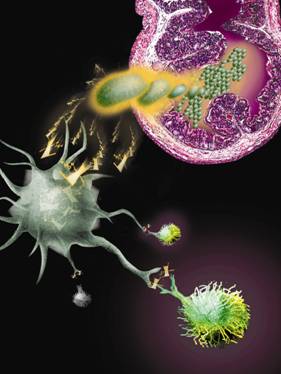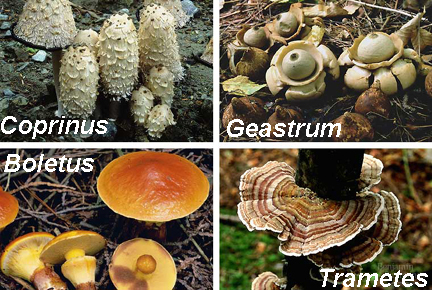According to a recent study conducted by researchers at Kansai Medical University in Osaka, Japan, the mushroom compound AHCC (Active Hexose Correlated Compound) can increased immune system function by increasing the number of dendritic cells (DCs) which carry out a key role in an active immune system. DCs are responsible for recognizing abnormal or foreign objects, cells or particles in our bodies and presenting them to T-cells which act to destroy invading cells and to initiate a proper immune response.

Recently published in the journal Nutrition and Cancer, the study showed a significant increase in the active group given the AHCC compound after 4 weeks as compared to both the baseline and control group measurements.
"This study shows that AHCC increases production of DCs that are critical for maintaining a healthy and balanced immune system. It also provides insights in understanding how AHCC works by impacting specific immune system cells. More studies will be conducted to further investigate the effects of AHCC," said Naoyoshi Terakawa, M.D., Department of Surgery, Kansai Medical University and author of the study.

Mushrooms in the phylum Basidiomycetes provide extracts that boost immune function by increasing growth of Dendritic cells. Photo credit: University of Miami, Department of Biology
AHCC is a compound made from several subspecies of mushroom from the phylum Basidiomycota, which
produce spores outside of the pedestal like basidium. Common types of Basidomycetes include Agaricus bisporus, the common button mushrooms and Lentinula edodes, the Shiitake mushroom. Basidomycetes also include human and agricultural pathogens including Crytococcus neoformans which reduce effects of the immune system and Ustilago maydis, a pathogen which infects corn crops.
In addition to this study, other studies done with AHCC have shown increased activation of other immune system cells including macrophages, Natural Killer cells and Lymphokine-Activated Killer cells. AHCC has also been seen in increase specialized cytokines that carry chemical messages between cells.
With its immune enhancement effects, usage of AHCC could reduce our need for antibiotics and lessen our
rate of bacterial resistance. This could allow us to fight infection more easily, with less severe illness development and develop new methods for treating diseases such as cancer.
AHCC is currently used in Japan as a nutritional supplement to help ward off infection and maintain a healthy lifestyle but has yet to be evaluated by the US Food and Drug Administration.
References:
Immunological Effect of Active Hexose Correlated Compound (AHCC) in Healthy Volunteers: A Double-Blind, Placebo-Controlled Trial. Naoyoshi Terakawa, Yoichi Matsui, Sohei Satoi, Hiroaki Yanagimoto, Kanji Takahashi, Tomohisa Yamamoto, Jun Yamao, Soichiro Takai, A-Hon Kwon, Yasuo Kamiyama. Nutrition and Cancer. 2008 ;60 (5):643-51 18791928






Comments